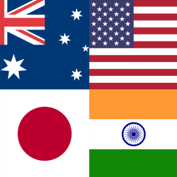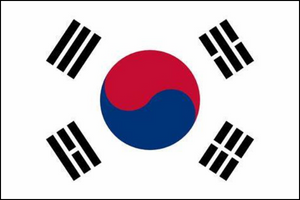
Key global insight
The University of Queensland will receive $3.3 million from the Albanese Government to establish a Brisbane facility for mRNA vaccine development against cancers. The project will explore their effectiveness against a range of cancers where few other treatments are available. This follows the $280 million Translational Science Hub announced in 2022 in partnership with Sanofi, the University of Queensland, Griffith University, and the Queensland Government. Queensland is quickly emerging as a global hub for cutting-edge clinical research and development, offering seamless end-to-end clinical trial solutions.

The recent Quad meeting (a diplomatic partnership between Australia, India, Japan, and the United States) focused on strengthening cooperation in technology, supply chain security, renewable energy, and emphasised a free and open Indo-Pacific. The discussions highlighted the need for resilient supply chains for semiconductors and renewable energy, which could significantly benefit Queensland. Australia's critical minerals sector has the potential to add $71.2 billion to GDP and create 115,100 jobs by 2040, with Queensland well-positioned to contribute to this growth.
A report released by Deloitte has found that some of Australia’s critical minerals comparative advantages are not yet valued in the global demand-supply dynamic. While the report highlights that Australia is well placed in the event of stronger ESG requirements on critical minerals or in the event of a global trade war, there is an opportunity to ensure Australia’s comparative advantages are recognized in the global trade environment.
Many are bracing for the US to enter a potential US recession in 2024 could have far-reaching effects on global trade and economic stability. With the highest predicted probability of entering a recession as projected by economic models since the great financial crisis, factors such as tightening monetary policy, slowing GDP growth, and weakening consumer spending are raising concerns. These developments could significantly impact Queensland's export-driven economy, particularly in sectors like agriculture and resources, where global demand is sensitive to economic shifts in major markets.
The EU’s Corporate Sustainability Due Diligence Directive (CSDDD) now requires companies to address human rights and environmental impacts across their operations, subsidiaries, and value chains. These new regulations provide opportunities for ESG companies in Queensland. For example, Earthcheck recently collaborated with Kempinski, Europe’s oldest luxury hotel group, enhance its ESG reporting and develop its sustainability strategy in response to the new regulatory landscape. It is crucial for Queensland companies to understand the implications of these new rules.

The popularity of Toowoomba Pasta—a dish originally created by Outback Steakhouse in South Korea, and now sold through supermarkets—highlights branding opportunities for Australian businesses. Dr Peter Lee from the Australia Korea Foundation says Toowoomba Pasta’s success shows that there is an opportunity for authentic Australian foods, fashions and culture. Ross Gregory, chairman of AustCham in Korea, agrees that with the right partners, Australian products, particularly in the food sector, can thrive in South Korea. Queensland’s exports to South Korea totalled $14.2 billion for the 2024 financial year.
Featured insights

US Election Updates
- Vice President Kamala Harris has officially been certified as the Democratic presidential nominee.
- Minnesota Governor Tim Walz has been confirmed as Kamala Harris’s running mate. Walz voting record and stances on key issues include:
- Strong action on Climate Change; as Minnesota Governor legislated slashing emissions by 50% by 2030 and committed to Net Zero by 2050.
- Walz has previously voted against trade deals, preferring a focus on 'worker-centred' trade policy.
- On China, Walz—who previously taught in Guangdong—has adopted a pragmatic approach, cosponsoring bills addressing China’s Human Rights record but calling on cooperation between Washington and Beijing.

Federal Government to cap international students
- The Federal Government is pushing ahead with plans to cap the number of international students enrolled in Australian universities from January 1.
- Universities Australia chief Luke Sheehy has warned the proposal could cost the economy $4.3bn and cost the sector more than 14,000 jobs.
- International education is worth nearly $50bn to Australia’s economy.
- The university sector had already lost 60,000 students due to a 23 per cent reduction in IET student visas granted.
- Universities fear they may have to revoke some of the offers they have already extended to students if the bill capping student numbers is passed.
In case you missed it...
- Cairns’ new $4.1 million Advanced Manufacturing Skills Lab has opened at the TAFE Queensland campus.
- Protesters in Bangladesh have stormed the prime minister's official residence, as a wave of anti-government demonstrations continue. Bangladesh's Prime Minister Sheikh Hasina has resigned and fled the country.
- Japanese stocks soared more than 10% on Tuesday, a day after experiencing their biggest fall in 37 years, setting markets tumbling in Europe and on Wall Street.
- RBA held interest rates at 4.35 per cent. Reserve Bank Governor Michele Bullock said there were no expected cuts to interest rates in the next six months.

